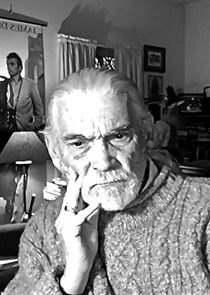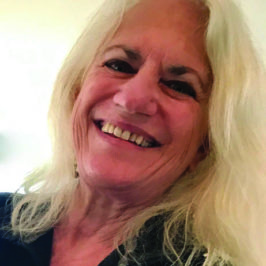

Into the archive, featuring an epistolary poem by Andrew Brown, and excerpts from cover letters and thank-you notes sent by Passager’s readers and submitters over the years.
7 minutes
TRANSCRIPT
December 7 is National Letter Writing Day, the day we put down our digital technology and reconnect with pen and paper. It reminds us of the power of the written word and the enduring significance of handwritten letters in our lives.
We’ll start our tribute to letter writing with Andrew Brown’s epistolary poem “To Ted, from the Bitterroots.”
Ted, we miss you in the Bitterroots. We’re here
hunting bear like you and I did so many years ago.
There’s still much snow in the high timber, but you
can see the tracks, and the bear has come down
to the meadows. We made camp in a grove
of aspen, and the wind blows sweet with larch
and jack-pine. Tonight the stars seem close enough
to touch, and the moon’s a silver dollar.
I don’t suppose
I really care if we kill a bear. Fact is, I’d just as soon
we didn’t. Who needs the Hemingway thing?
It’s being here in the high country that matters,
because it’s all still here, and a bear has come
down from his cave. For me just knowing the old
fellow is out there beyond the fire light is enough.
Be well my friend, and know that here under
a shooting star’s arc you’re missed, yet held
in friendship, by the flight of light across the sky.
“To Ted, from the Bitterroots,” Andrew Brown from his book The Chugalug King and Other Stories.
Many people who send work to Passager include a cover letter. Since we’re celebrating National Letter Writing Day, I’m going to read excerpts from some of those. First, from Ben.
Dear Editors,
My introduction to literature came by way of my grandmother, who could recite epic poems from memory and do so leaving my imagination soaring wildly. Through the years, her influence remained with me as I began to write in the rhyme-schemed and metered tradition. Later, after gaining greater exposure to 20th Century writers, I developed a taste also for free verse poetry as represented initially by the work of WWI poets like Seeger, Sassoon, de la Mare, and Brooke. That further opened my eyes to the ever more reactionary, though highly creative poetry of the post-modern era with its rejection of conventional syntax, grammar, and formatting. While I must admit to having been often tempted to reproduce the kind of writing that seems to engage today’s readership, I have failed at every turn. It seems my voice, such as it is, will not stand for it, will have its way. Thus, I continue to nurture it by reading Yeats, Housman, Dickinson, Frost, Auden, and, yes, Shakespeare. That said, I humbly submit to you my poems as well as a piece of prose, its content the result of my own experience.
Here’s another, this one from Sharon.
Dear Reader:
These poems have grown out of reading and pondering life as I enter my ninth decade, limited somewhat now by a major stroke as well as age. I have had a full life from the death of my mother when I was three through the years of growing up in a male-centered family and rural community, a stint in the Navy, working my way through college, raising three children, assisting a loving mathematician husband on a small farm, teaching public school, working publishing, earning a Ph.D. late in life, and finally teaching at a small liberal arts college in rural New York State until retirement. Now I read, write, sing, play in recorder ensembles, and watch the weather and the flora and fauna nearby. May you enjoy at least one of these poems.
WB wrote this next one.
Dear Those in whom great power is invested:
With a conscripted army of monkeys and typewriters turned laptops, I have managed to plagiarize their pages into one or two stories that might be worth the time of a hungry gatekeeper, and I submit this one to you. Not much more to say except that, unfortunately, I meet your age requirement. Our mothers pounded into us that a Southerner can never thank someone enough. So thank you again.
And that’s a good segue to that subgenre of letters, the thank you note.
Dear KK and the rest of the Passager staff,
Your magazine makes me want to be more human, television suddenly turned off so I can hear a more real hum playing the ocean in my shell as it tastes a tiny beach ball or pearl rolling out of ear-like mouth. My shell is a little cracked but has good intentions because you have a very good magazine. Signed John.
This last note’s from Brian.
I recently picked up one of your books by Jean L. Connor, A Cartography of Peace, at a local used bookstore in Western North Carolina. Somehow, this beautiful little book made its way through miles and years to end up in front of me, a fifty-four-year-old graduate student. This book has become a real friend for me, and I simply wanted you, your staff, and the author to know that your good work is never finished. You grow these books, but unlike flowers, they never stop blooming. Or perhaps, more to the point, they endlessly reseed as this one has in me. Thank you.
And thank you to our writers, readers, listeners, and donors.
To buy Andrew Brown’s book The Chugalug King and Other Stories, subscribe to, submit to, or learn more about Passager and its commitment to writers over 50, go to passagerbooks.com. You can download Burning Bright from Spotify, Apple and Google Podcasts and various other podcast apps.
For Kendra, Mary, Christine, Rosanne, and the rest of the Passager staff, I’m Jon Shorr.






